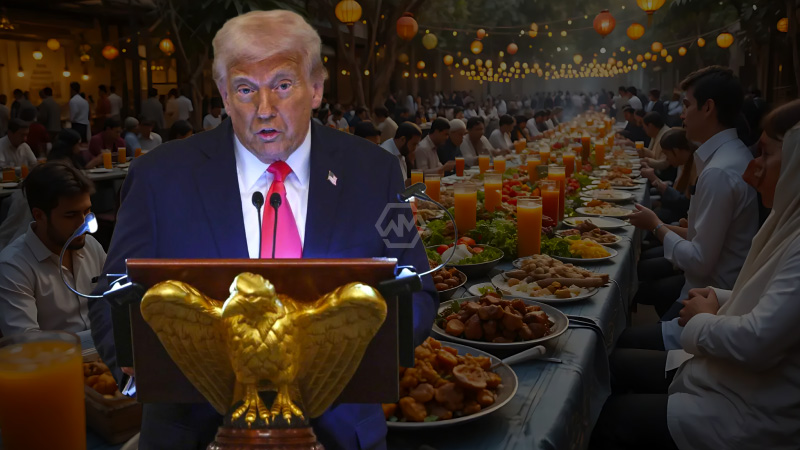- Trump thanked Muslim-American voters for their support in the 2024 election.
- He reaffirmed his commitment to the Abraham Accords and Middle East peace efforts.
- The event was attended by diplomats, community leaders, and government officials.
President Donald Trump hosted an Iftar dinner at the White House, marking the Islamic holy month of Ramadan. Addressing Muslim-American leaders and diplomats, he expressed gratitude for their electoral support and reaffirmed his administration’s commitment to fostering diplomatic relations in the Middle East.
Trump also spoke about his efforts to expand the Abraham Accords, the agreements that normalized relations between Israel and Arab nations during his first term.
Trump’s White House Iftar: A Renewed Outreach to Muslim-Americans
In a move to strengthen relations with the Muslim-American community, President Trump hosted an Iftar dinner at the White House, acknowledging their contributions and support in the 2024 election. He assured attendees that his administration would honor its commitments and continue engaging with Muslim leaders domestically and abroad.
The event came amid ongoing tensions in the Middle East, particularly the Israel-Gaza conflict. Trump reiterated his administration’s focus on diplomacy, pointing to the Abraham Accords as a foundation for long-term peace. He suggested that additional Arab nations could join the agreements in the near future.
While past White House Iftars have varied in tone, Trump’s emphasis on Muslim-American voter support was notable. His remarks underscored a shift from his first term, where his policies often drew criticism from Muslim advocacy groups. This time, he framed his administration as a partner to the community.
The dinner was attended by diplomats, religious leaders, and government officials, reflecting a broader effort to engage with diverse voices. Trump’s outreach suggests a political and diplomatic recalibration as he navigates his second term.
Trump’s Iftar dinner not only acknowledged the importance of Ramadan but also served as a platform to reaffirm his administration’s Middle East policies and domestic outreach.
“The Muslim community was there for us in November—and while I’m president, I’m going to be there for you.”



